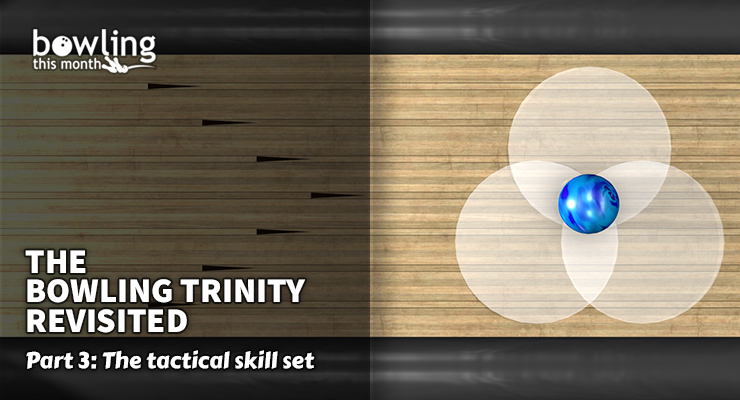Article Contents
- 1. Blind spots
- 1.1. The heads
- 1.2. The midlane
- 1.3. Pin action
- 2. Paralysis by analysis
- 2.1. Trust your gut
- 2.2. Make a game plan
- 3. Good decision-making leads to good execution
- 3.1. You know good ball motion when you see it
- 4. Final thoughts
Note: This article is only available to Bowling This Month subscribers.
Last time, we looked at the physical skill set of bowlers. Next up in the Bowling Trinity Revisited series is the tactical side of the game. Like all sports, the tactical elements of bowling get more and more important as you improve. Once you’ve figured out the basic execution and you can repeat shots well enough, your decision-making often becomes the difference between a good performance and a bad one.
This isn’t to say that beginning and intermediate bowlers shouldn’t start learning about the tactical side of the game right away. On the contrary, understanding the importance of good decision-making on the lanes early on can help simplify the development process. “Tactics” includes the equipment, lanes and oil, topography and pins, and every other little detail that is involved in lane play decision-making. I’ll touch on all of these as we go through how to expand and master your tactical skills. We’ll also cover bowling blind spots, overthinking, and the relationship between decision-making and execution.
Blind spots
Every bowler has blind spots. Whether it’s because you really can’t see something, or because you haven’t yet learned what to look for, blind spots exist. When it comes to expanding and mastering your tactical skills, these blind spots are what hold most people back.
The heads
Even bowlers who target the foul line can’t really see much of what happens in the first 10 to 15 feet of the lane. Most bowlers only pick up the ball in their field of view after 10 feet. This can create havoc when the heads start getting very dry, or when the topography issues are significant.
Shots that might feel good off the hand are immediately pulled or pushed off-line by the lack of oil or slope of the lane. By the time you see the ball, it’s already off-line, but you don’t know that it’s the lane’s fault instead of yours. Without ever seeing it, there’s no way to confirm what’s happened. Or is there?
This is where an understanding of your feel is very important. Even beginner bowlers will know when they feel like they threw it well. If you feel like it was a good shot, but you somehow don’t hit your target at the arrows, there’s a pretty good chance the lane “took it ...
Already a premium member? Click here to log in.


